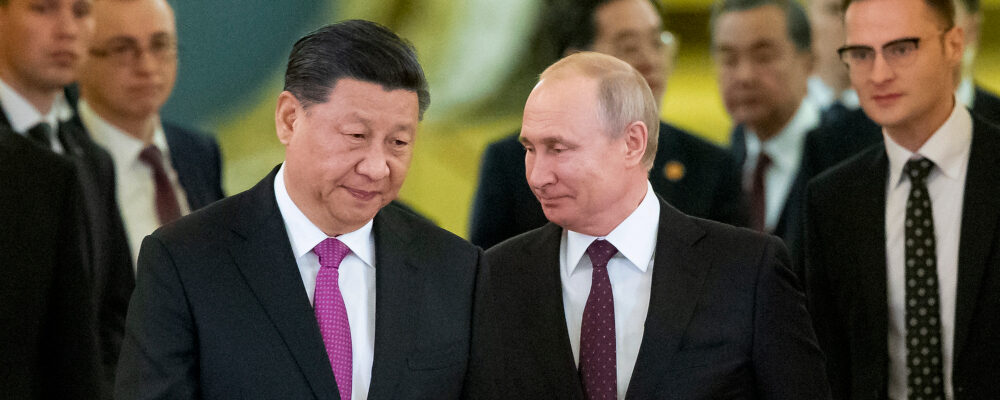The atrocities by the Russians against Ukraine have shocked the world. Putin has directed his country’s massive “military-industrial complex” to either win the war or inflict maximum damage on Ukraine. Despite the bravery of Ukraine’s fighters, a long battle will be more damaging for Ukraine than for Russia. And as long as the battle isn’t fought in Russia, Putin can continue the war indefinitely while their war factories remain unmolested. So how will the fighting end? According to historian and international affairs expert Stephen Kotkin,1On April 13, Professor Kotkin gave his thoughts on the war at the Salon Speakers Series at the Gardiner Museum in Toronto. For those unfamiliar with Professor Kotkin, he’s best known for his three-volume biography of Joseph Stalin, described by the NYT as “monumental.” His work has been studied closely by President Xi Jinping and Communist party elites. Professor Kotkin is a Senior Fellow at the Hoover Institution and an advisor to the Biden Administration. the outline of a peace deal may be emerging.
In his visit to Moscow in March, Xi Jinping proposed a twelve-point peace plan that was quickly rejected by NATO powers, especially Ukrainian President Volodymyr Zelenskyy. Nonetheless, the offer was the possible start of a peace plan. Why would China want to end the war when they benefit from cheap Russian oil while the United States depletes its military arsenal, such as its Javelin anti-tank missiles?
China has two motives for pursuing peace; to announce to the world that it is a major diplomatic player and to halt the growing anti-China sentiments worldwide, especially in Europe. China’s prestige on the world stage will only increase if it is seen as stopping the killing. Xi has already gained a diplomatic victory by brokering a deal between Iran and Saudi Arabia and now wants to do the same between Israel and the Palestinians.
Now that China is the senior partner in its relationship with Russia—and Russia’s leading international backer—it is the only country that can guarantee the terms of any armistice or peace agreement. A deal with Putin alone would have no value since he couldn’t be trusted to hold up his end of any contract.
On the other hand, Kotkin argues that Putin would not dare break the terms of a deal with NATO and Ukraine if it is secured and endorsed by Beijing. Xi would be the last person Putin would want to offend now that he has handed his country’s economic salvation to the Chinese. Given the hostile history between the two countries, this is an extraordinary turn of events.
The Ukrainians could push the Russians from their territory, though highly unlikely. This would be a form of victory but not a lasting peace. The Ukrainians can win the peace by getting the two things they have wanted all along, the freedom to join the West and remove themselves from Russia’s grip with a security guarantee. That’s what the 2004 Orange Revolution was all about. Henry Kissinger now supports the idea that Ukraine has earned the right to become a member of NATO.
Kotkin thinks this is a bad idea. He believes Ukraine won’t have the support of all NATO members, especially Germany. Russia gets to save face by keeping land now occupied by Russian-speaking Ukrainians in the Donbas region and keeping Crimea, which looks like a lost cause for Ukraine. Even Boris Yeltsin demanded the return of Crimea when Ukraine declared independence after the collapse of the Soviet Union in 1991.
The best solution is an armistice with a demilitarized zone. This solution has kept the peace for 70 years on the Korean peninsula, turning South Korea into an economic powerhouse. The same could happen to Ukraine.

Kotkin reminds us that things could change before a peace agreement comes entirely into view, such as Putin facing the same fate as Ceausescu in Romania. But that’s a wish, not a plan. The question is, will the United States administration engage with China over a peace deal now that there are deep tensions over trade and Taiwan?
China has strong incentives to bring Putin to the negotiating table. It wants to burnish its tarnished reputation in the West, especially after COVID, and show the world it is a power on par with the U.S. Will the U.S. get on board and convince Zelenskyy to negotiate? The U.S. is also incentivized to deny the Sino-Russian side a propaganda victory. For now, America’s financial and public support for Ukraine is deep, but neither is infinite.




